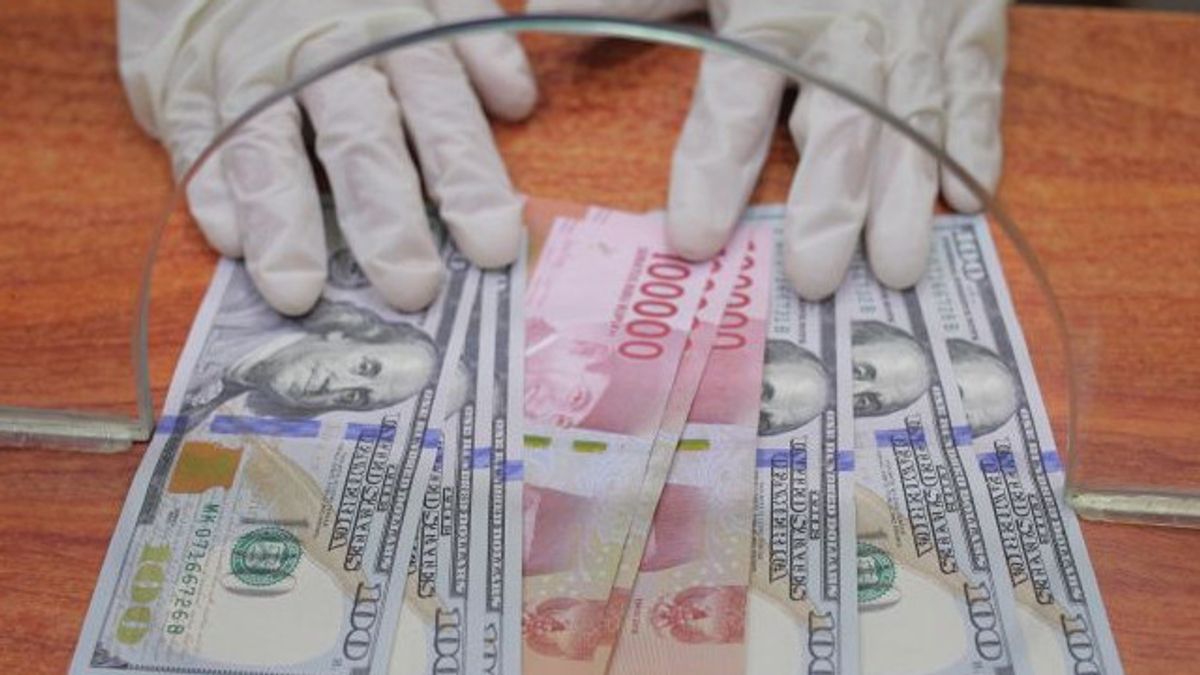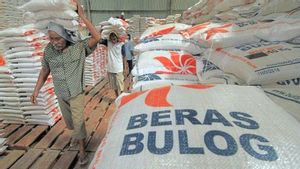
JAKARTA - Institute for Development of Economics and Finance (Indef) Economist Abdul Manap Pulungan views that interventions carried out by Bank Indonesia (BI) to stabilize the rupiah exchange rate must be balanced with stable political conditions in the country.
"We understand that BI does not have large reserves for intervention, so what needs to be considered is of course we have to see how later BI interventions will be followed by good political turmoil in the country," Abdul said, quoted from Antara, Wednesday, April 17.
Abdul also warned that the current trend of weakening the rupiah exchange rate would be exacerbated by a detrimental political turmoil that could cause the rupiah to potentially decline to a lower level.
For information, the rupiah exchange rate against the US dollar on Tuesday morning fell 240 points or 1.51 percent to Rp16,088 per US dollar from the close of the previous trade on April 5, 2024, amounting to Rp15,848 per US dollar.
Then on Tuesday afternoon, the rupiah exchange rate closed down 328 points or 2.07 percent to Rp16,176 per US dollar from the close of the previous trade on April 5, 2024, amounting to Rp15,848 per US dollar.
The weakening of the rupiah exchange rate on the first working day after the Lebaran holiday occurred in line with the conflict between Iran and Israel and the sentiment of delaying the cut in the benchmark interest rate of the United States (US).
Responding to this condition, Abdul also reminded that the rupiah is currently increasingly staying away from the state budget assumptions. In the basic assumption of macroeconomics in the 2024 state budget, the government has set an rupiah exchange rate of IDR 15,000 per US dollar. This condition will be detrimental to the business considering that economic actors use the assumption of the state budget as a reference for planning their business.
"If it weakens, it will harm businesses, especially businesses related to state traffic, especially imports of raw materials or capital materials which will ultimately harm the community through increasing domestic prices," said Abdul.
관련 항목:
As previously reported, BI took a number of important steps to maintain the stability of the rupiah after the Lebaran holiday and in the midst of the heated conflict in the Middle East and the dynamics of the development of the US economy.
One of the steps taken is to maintain the balance of foreign exchange supply-demand (varlas) in the market (market) through triple interventions, especially in spots and Domestic Non-Delivereable Forward (DNDF).
BI also increases the attractiveness of rupiah assets to encourage foreign capital inflows (capital inflows), such as through the attractiveness of Bank Indonesia's Rupiah Securities (SRBI) and hedging costs. In addition, BI will coordinate and communicate with relevant stakeholders, such as the government, Pertamina, and others.
The English, Chinese, Japanese, Arabic, and French versions are automatically generated by the AI. So there may still be inaccuracies in translating, please always see Indonesian as our main language. (system supported by DigitalSiber.id)














